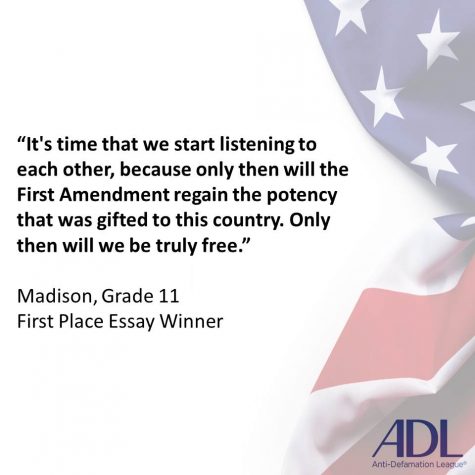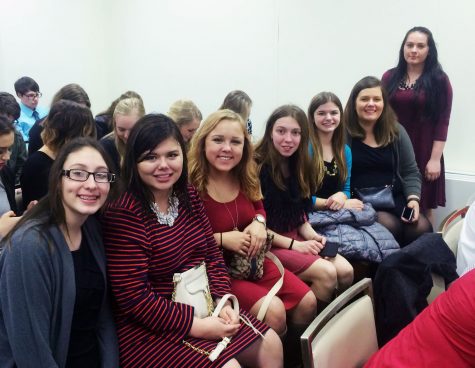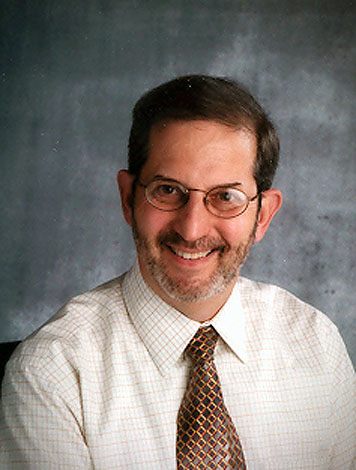Certified or certifiable: Why go through the process of earning JEA credentials?
by Aaron Ramponi, CJE
We had a conversation at the recent KEMPA Winter Advisers’ Seminar about the value of becoming JEA certified. This got me thinking: what really is the benefit? Why are three letters — whether CJE (Certified Journalism Educator) or MJE (Master Journalism Educator) — after your name important or necessary?
At last year’s seminar, immediately after about 30 participants thanked rock-star journalism educator Jim Streisel, MJE, for all he taught us and wished him a safe flight back to Indiana, a comrade and I hunkered down in a hotel conference room to hopefully earn our CJE credential.
I had spent the days and hours leading up to this exam reviewing rules on media law and ethics and brushing up on landmark court cases. On the JEA website I read the exam guide, the standards for the exam and the FAQs. I even flipped through slides that are intended for national conference presentations. The night before the exam, after a day’s worth of learning but before the evening festivities (journalism advisers rock at karaoke), my JEA mentor quizzed the two of us test takers on practice questions: “How have reporting and the role of reporters changed in the last 20 years? … List and explain two ways students can use photos that will not violate copyright laws?” After an hour of focused prep, we were as ready as we were going to be.
The next day’s test was long — two and a half hours — and involved. There were three parts: 50 multiple choice questions, 20 short-answer questions and eight “demonstration activities,” such as incorporating a list of facts from an imagined scenario into the first several paragraphs of an actual story. To be honest, I didn’t finish this part; I worked steadily for the entire exam, carefully reasoning out the multiple choice and responding thoroughly to the short answers (my short answers weren’t really short). About three quarters through the demonstration portion of the exam, my mentor called time. I hadn’t prepared for or experienced an exam like this since the PRAXIS tests, and at least those I had finished. As I pushed away the laptop that contained my answers, I felt that not only wouldn’t I be certified but that I was downright certifiable for having gone through all this, perhaps for nothing. The test taker next to me had a similar experience. But then my mentor admitted that no one she had administered the exam to had ever finished and said not to worry.
We needed to score at least 75 percent correct on the overall exam. The Certification Commission says the test is a “comprehensive exam measuring basic knowledge and application of the JEA teaching standards.” And it was. They also say that “the law and ethics standards are the foundation upon which all scholastic journalism programs are built. Therefore,
those questions on this exam are more heavily weighted.” And they are; we needed to score at least 75 percent correct on the law and ethics portion alone.
My mentor was right: we needn’t have worried. We were prepared, by study and experience. Both of us passed. And so can you.
So what is being certified all about? Why go through all of this? Well, the Certification Committee lists many goals for the certification process, including these:
- To promote professionalism in scholastic journalism.
- To offer national certification to scholastic journalism teachers and advisers.
- To designate as master teachers educators whose experience and expertise make them outstanding professionals.
- To recognize educators who possess the education or experience to teach scholastic journalism and advise student publications.
- To improve public and school district perceptions of certified scholastic journalism teachers as professionals.
But, as I thought about the conversation that sparked all of this, there was one reason in particular that stood out to me. Even if I wouldn’t have made the mark the first time, it wouldn’t have been for nothing. I could have taken it again, and I would have (I would like to try for the M in the future). Because it wasn’t really the letters that mattered, but what I learned from the process. Those three letters after your name — whether CJE or MJE — are not about bragging or being pretentious, or something to add to your resume. Not going through the process of certification certainly doesn’t mean you aren’t qualified or don’t know what you are doing — it’s not that at all. The committee states the goal this way: “To encourage those who are teaching scholastic journalism or advising student publications … to increase their knowledge of journalism and to provide a model for their continuing education.” For me, it was more about being invested in the process of learning, about being reflective of what I already know and can do as an adviser and teacher of journalism, and about how to become better.
It also helped to have encouragement — many of those people around me at that seminar had already earned their credentials, and it showed in what they said and what they shared about their programs. I wanted to help take my students and my program to where they already were, and the process of earning a JEA credential would help me get closer to that. I learned that those three letters, for me, are really all about my program, my club, my kids. And they can be about yours too.
So at the end of this year’s Winter Adviser’s Seminar, while after about 30 participants thanked all-star journalism educator Michael Hernandez for all of his inspiration and wished him a safe flight back to California, and while another fellow journalism adviser went off to take her exam and hopefully earn her CJE credential, I thought back to that same moment a year ago, reflected on what my program had accomplished, and asked if taking the test had been worth it.
The answer is yes. Certifiably.
Aaron Ramponi, CJE, is the adviser of the Noctiluca, the student-run newspaper and website at Appleton North High School in Northeastern Wisconsin. He is a board member of KEMPA and NEWSPA. His blog focuses on his experiences in growing a media program.





